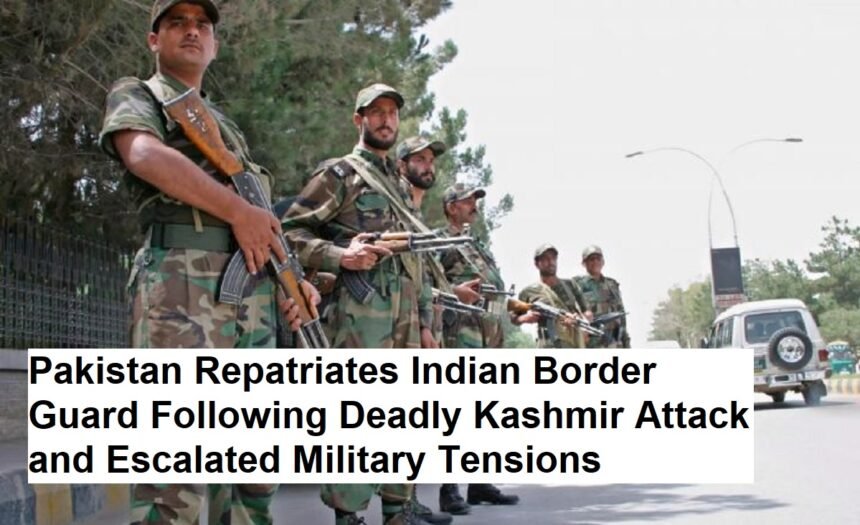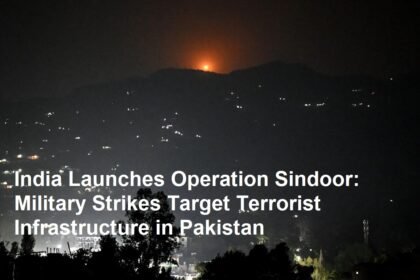On Wednesday, May 14, 2025, Pakistan repatriated an Indian border guard who had been detained following a deadly attack in Indian-administered Kashmir in April 2025. The attack, which resulted in the deaths of 26 people, significantly escalated tensions between the two nuclear-armed neighbors and triggered a series of military responses, including missile strikes, drone operations, and fighter jet engagements. The return of the border guard marks a notable development in the ongoing conflict and diplomatic exchanges between Pakistan and India.
The attack in Kashmir, a region long disputed by India and Pakistan, was one of the deadliest incidents in recent years. It heightened already fragile relations and led to swift retaliatory actions by India. The Indian military responded with missile strikes targeting militant camps, drone surveillance and strikes, and fighter jet sorties aimed at neutralizing perceived threats. These actions underscored the volatile security situation in the region and the high stakes involved in the Kashmir conflict.
The detained Indian border guard was captured by Pakistani forces shortly after the attack, adding a complex human dimension to the escalating military confrontation. His detention became a focal point in diplomatic communications, with India demanding his immediate release and Pakistan using the situation as leverage in broader negotiations. The repatriation on May 14 was seen as a gesture aimed at de-escalating tensions and opening channels for dialogue.
Pakistan’s decision to return the border guard may reflect multiple strategic considerations. It signals a willingness to engage in confidence-building measures despite ongoing hostilities and serves to mitigate international pressure calling for restraint and peaceful resolution. The move also highlights the delicate balance both countries must maintain between demonstrating strength and avoiding full-scale conflict.
The Kashmir region remains one of the most militarized and sensitive borders in the world. The April attack and subsequent military responses illustrate the persistent volatility and the potential for rapid escalation. Both India and Pakistan have historically used military and diplomatic tools to assert their claims and respond to provocations, often drawing international attention and concern.
The repatriation of the border guard is likely to be welcomed by diplomatic actors advocating for peace and stability in South Asia. It may pave the way for renewed talks or at least reduce immediate tensions. However, the underlying issues in Kashmir, including territorial disputes, political grievances, and militant activity, continue to pose significant challenges to lasting peace.
International observers have called for restraint from both sides and emphasized the importance of dialogue to prevent further loss of life and regional destabilization. The incident serves as a reminder of the fragile nature of peace in the region and the urgent need for sustained diplomatic efforts.
In conclusion, Pakistan’s return of the Indian border guard on May 14, 2025, following the deadly April attack in Kashmir and the ensuing military escalations, represents a critical moment in the ongoing conflict between the two nations. While it offers a glimmer of hope for de-escalation, the broader challenges in Kashmir remain unresolved. The international community continues to watch closely, hoping for a peaceful resolution to one of the world’s most enduring and complex conflicts









